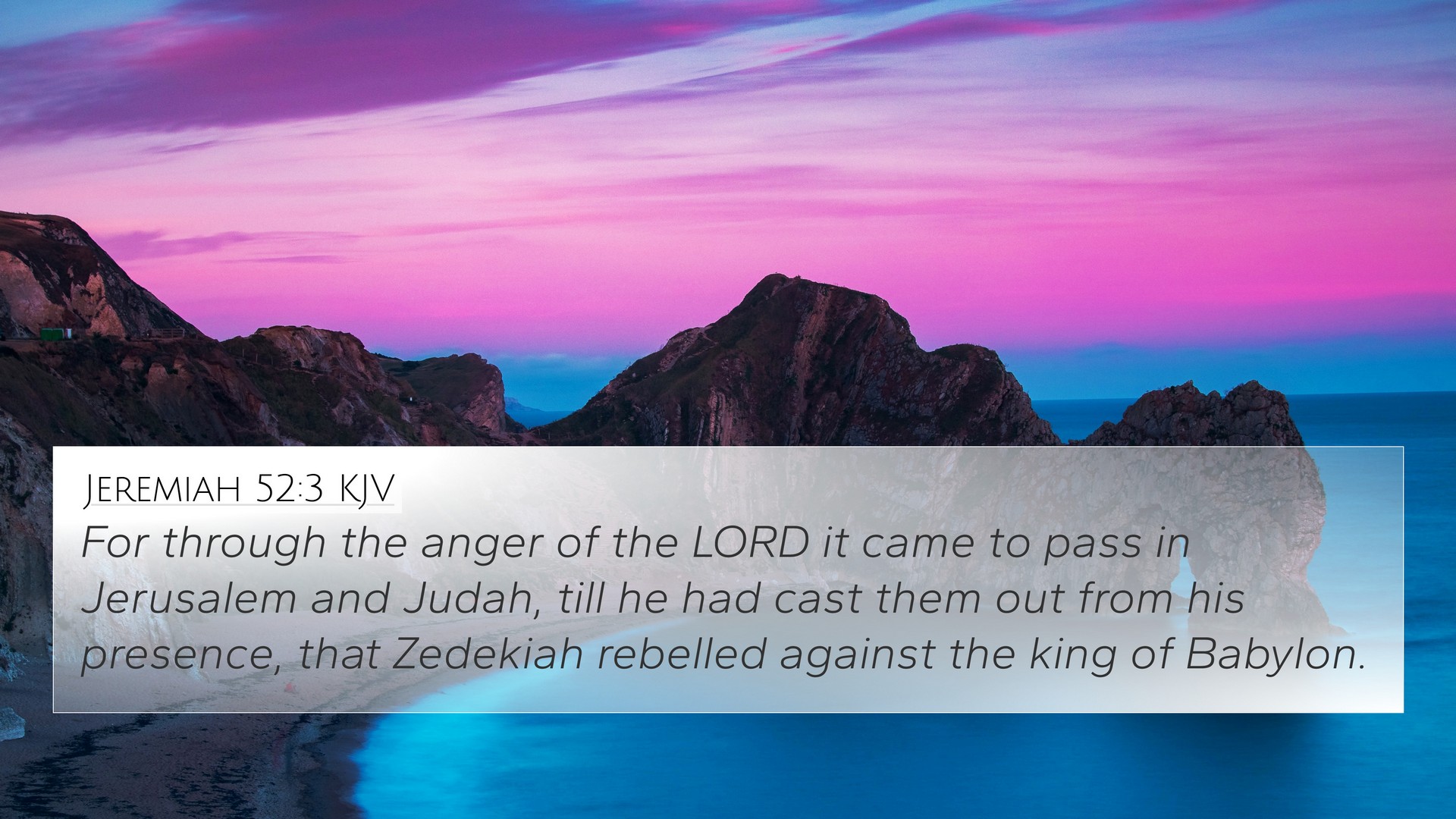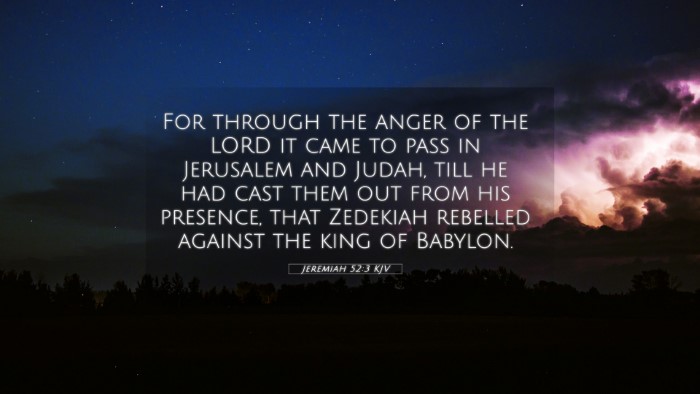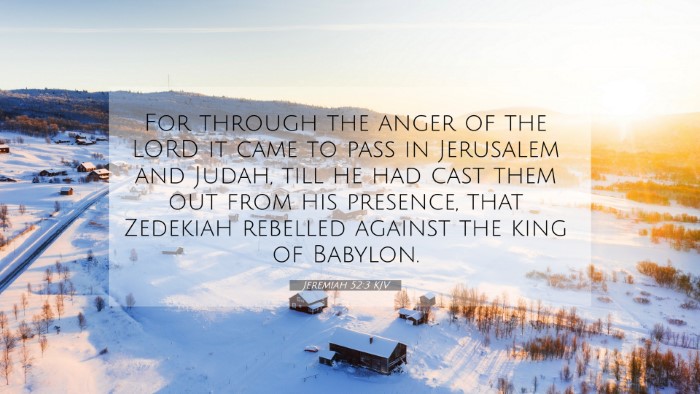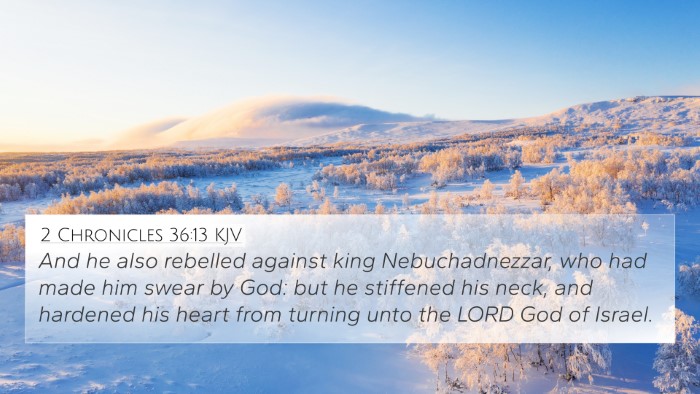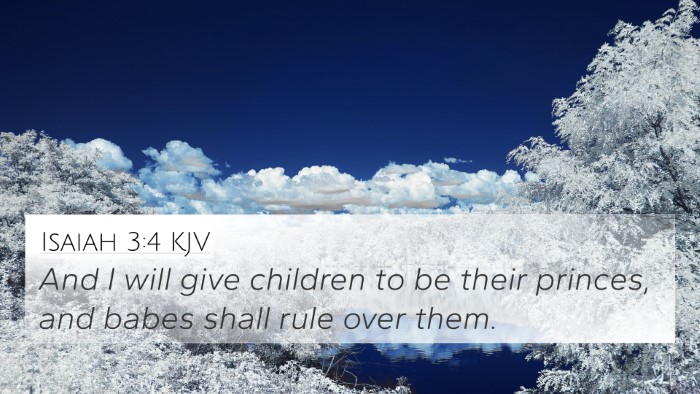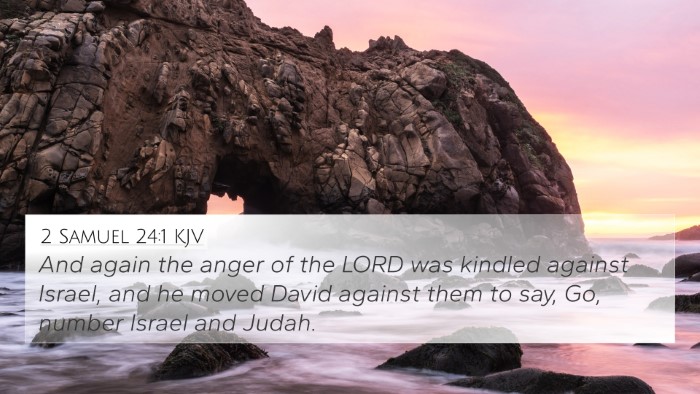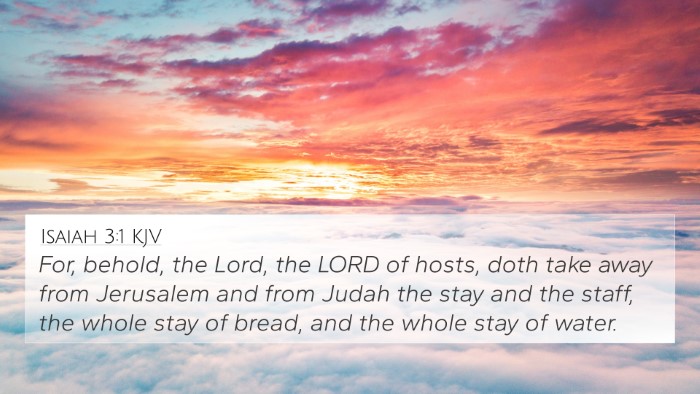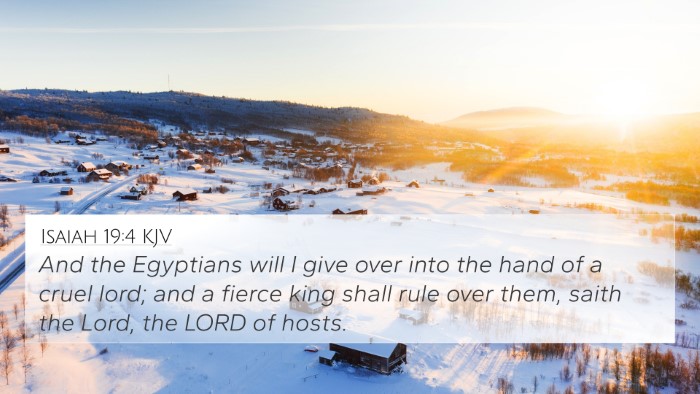Understanding Jeremiah 52:3
This verse encapsulates a pivotal moment in Biblical history, highlighting themes of divine judgment and the consequences of disobedience to God’s covenant. Jeremiah 52:3 states:
"For through the anger of the LORD it came to pass in Jerusalem and Judah, until He had cast them out from His presence, that Zedekiah rebelled against the king of Babylon."
Context and Overview
The verse is positioned at the conclusion of the Book of Jeremiah, capturing the grim fallout from Israel's long history of turning away from God. Zedekiah's rebellion against Babylon is indicative of the broader societal and spiritual decay that characterized Judah at the time.
Verse Meaning
- Divine Anger: Matthew Henry emphasizes that the anger of the LORD was directed toward Jerusalem due to persistent idolatry and sin. God’s justice required a response to these actions.
- Judgment and Exile: According to Albert Barnes, the casting out implies not only physical exile but also spiritual separation from God's blessings, indicating the severity of their transgressions.
- Leadership Failures: Adam Clarke points out that Zedekiah’s rebellion signifies a failure in leadership, both politically and spiritually, as he did not seek the counsel of God.
Key Themes
- Consequences of Rebellion: The actions of Zedekiah serve as a reminder of the repercussions of opposing God’s will.
- God’s Sovereignty: This verse illustrates God’s ultimate authority over nations and kings, reinforcing the idea that human rebellion does not thwart divine plans.
- Restoration and Hope: While this passage focuses on judgment, the greater narrative throughout the Bible offers promise of restoration and hope for the future, particularly in the New Testament context.
Cross-Referencing Biblical Texts
Jeremiah 52:3 can be effectively cross-referenced with various other scriptures to deepen its meaning and contextual understanding. Below are some key cross-references:
- 2 Kings 25:1-7: Details the siege of Jerusalem and reinforces the ultimate downfall of Zedekiah.
- Lamentations 1:1: Reflects on the desolation of Jerusalem as a result of God’s judgment.
- Ezekiel 17:15: Discusses Zedekiah's alliance with Egypt and subsequent rebellion against Babylon.
- Isaiah 39:5-7: Pointer to the earlier warning given to King Hezekiah about future exile.
- 1 Peter 2:9: Highlights the chosen nature of God’s people, underlining the importance of obedience.
- Romans 11:22: A reflection on God’s kindness and severity, elucidating the consequences of disobedience.
- Hebrews 10:31: Warns about the serious nature of falling into the hands of the living God.
Connecting Themes Across Scriptures
Through a comparative Bible verse analysis, one notes the recurring theme of disobedience leading to judgment. Scripture continually illustrates that God's anger is provoked when His people stray from His commandments, offering a stern reminder and a call to repentance. Tools for Bible cross-referencing, such as concordances and cross-reference guides, can reveal thematic connections across both the Old and New Testaments, adding layers to the understanding of Jeremiah 52:3.
Examples of Thematic Connections
- Exile and Return: The theme prevalent in Jeremiah and echoed in Nehemiah showcases the journey from judgment to restoration.
- God’s Faithfulness: Despite the failures depicted in Jeremiah, the entirety of Scripture reveals God’s unwavering commitment to His covenant.
- Human Imperfection: The rebellion of Zedekiah serves as a stark reminder of human frailty when faced with divine authority.
Conclusion
Jeremiah 52:3 serves as a sobering reminder of the consequences of turning away from God. Inter-Biblical dialogue reveals a rich tapestry of connections that illustrate God's justice and mercy throughout scripture. This verse, alongside its related passages, urges the reader to consider the seriousness of rebellion against divine authority and the hope found in eventual restoration through repentance.
